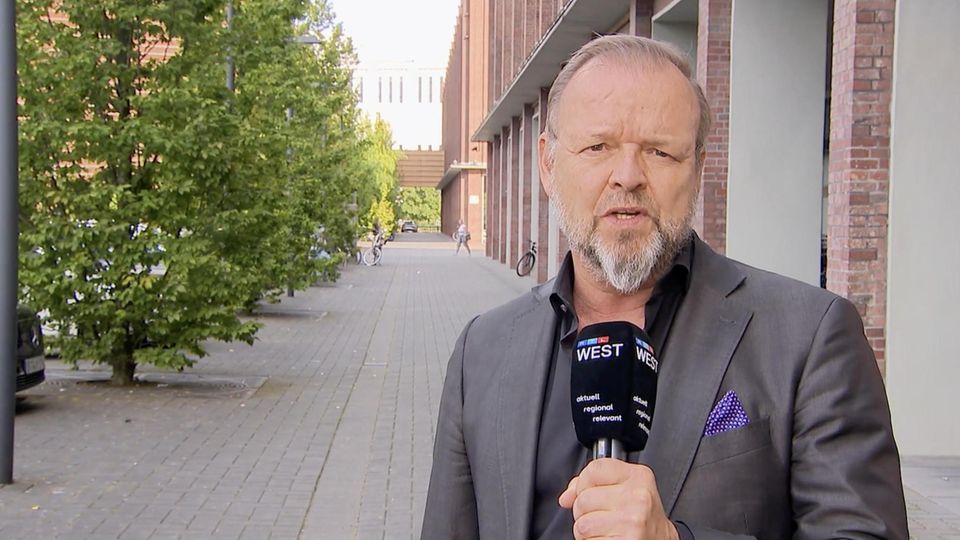The suspected Solingen attacker should no longer have been in Germany. But several circumstances prevented his deportation.
Issa Al H., the suspected knife attacker in Solingen, was supposed to have been extradited from Germany to Bulgaria last year. However, failures by authorities at several levels and a lack of flight options meant that he remained in the country. Last Friday evening, the 26-year-old Syrian is said to have killed three people with a knife and injured eight others at the Solingen town festival. Why did his repatriation go wrong? A chronicle:
Arrival in Germany
According to an overview by the North Rhine-Westphalian Ministry for Refugees, Issa Al H. will submit an asylum application to the branch of the Federal Office for Migration and Refugees (Bamf) in Bielefeld at the end of January 2023. A regular query shows that he had already submitted an application in Bulgaria.
On February 7, the BAMF submitted a request to Bulgaria to take him back in accordance with the EU’s Dublin rules, which the EU country agreed to on February 20. From then on, a six-month deadline for the return began. Al H. was accommodated in one of the country’s emergency accommodation facilities in Paderborn.
On March 16, 2023, the BAMF ordered the transfer to Bulgaria. The Central Aliens Authority (ZAB) in Bielefeld is responsible for the implementation. There are five of these authorities in North Rhine-Westphalia. One ZAB works for the state of North Rhine-Westphalia, but is commissioned by the Federal Office BAMF.
The failed deportation
On March 21, 2023, the ZAB registers the flight to Bulgaria with the responsible Central Office for Air Deportations NRW. On June 5, 2023 at 2:30 a.m., the emergency shelter is to be accessed to bring Al H. to Düsseldorf. The departure from there is scheduled for 7:20 a.m. But Al H. cannot be found – although he was still there on June 4 and shows up there again during the day on June 5.
Solingen
Attack at the folk festival – impressions from a city in shock
It is currently unclear whether he had been warned. According to the ministry, the Central Aliens Authorities do not announce transfers in advance. In any case, the man had not gone into hiding, as NRW Refugee Minister Josefine Paul (Greens) confirmed. If he had gone into hiding, the BAMF could have extended the transfer period to 18 months.
Access restrictions
In 2023, according to the law at the time, the authorities were not yet allowed to search other rooms in the refugee accommodation. A law that is intended to make the execution of deportations more effective has only been in force since the beginning of this year. Since then, for example, representatives of the authorities in shared accommodation have also been allowed to enter rooms other than the room of the person being deported.
Failures of the authorities
The management of the emergency shelter in Paderborn did not report the fact that Issa Al H. had reappeared to the ZAB Bielefeld. According to Minister Paul, this was an oversight, but there was also no corresponding regulation.
The ZAB, in turn, made no further attempt to register a new flight for Al H. to Bulgaria. The ZAB may have assumed that no flight would have been available within the repatriation period, which lasted until 20 August anyway.
Too few airline tickets
To make matters worse, the situation is made more difficult by the strict regulations for flights set by the EU countries to which rejected asylum seekers are to be transferred.
In the case of Bulgaria, according to the NRW Refugee Ministry, deportation flights are only allowed to land in the capital Sofia from Monday to Thursday between 9 a.m. and 2 p.m. Transfers by land are not permitted, nor are charter flights. An airline may only transport a maximum of two people to be deported per flight. According to the ministry, this means that theoretically only around ten deportations per week to Bulgaria are possible for all 16 federal states.
Staying in Solingen
After the six-month period has expired, Issa Al H. will be transferred to the national procedure by the BAMF, which means that his asylum application will be examined by the BAMF. At the end of August 2023, Al H. will be transferred to Solingen. On December 13, the BAMF will grant him so-called subsidiary protection. This means that responsibility for immigration law will be transferred from the ZAB to the local immigration authority there.
On August 23, 2024, the fatal knife attack takes place in the center of Solingen.

“Migration made in Germany has failed”
01:19mins
Transfers to EU countries
Statistics show how difficult transfers to Bulgaria and other EU countries are. In the first half of 2024, there were 164 returns to Bulgaria under Dublin rules across Germany. However, NRW alone submitted 1,126 transfer requests to the state between January and July, of which Sofia only accepted around 426. Of these, 25 people were ultimately transferred – just under six percent.
Things are no better in other countries. Italy approved around 1,470 of almost 1,750 requests for transfer from NRW between January and July, but no one was transferred. Greece only accepted 29 of 2,388 requests for transfer from NRW – there has not been a single transfer so far. NRW Minister Paul’s conclusion: “This system is so complex and fundamentally dysfunctional.”
Source: Stern
I have been working in the news industry for over 6 years, first as a reporter and now as an editor. I have covered politics extensively, and my work has appeared in major newspapers and online news outlets around the world. In addition to my writing, I also contribute regularly to 24 Hours World.




